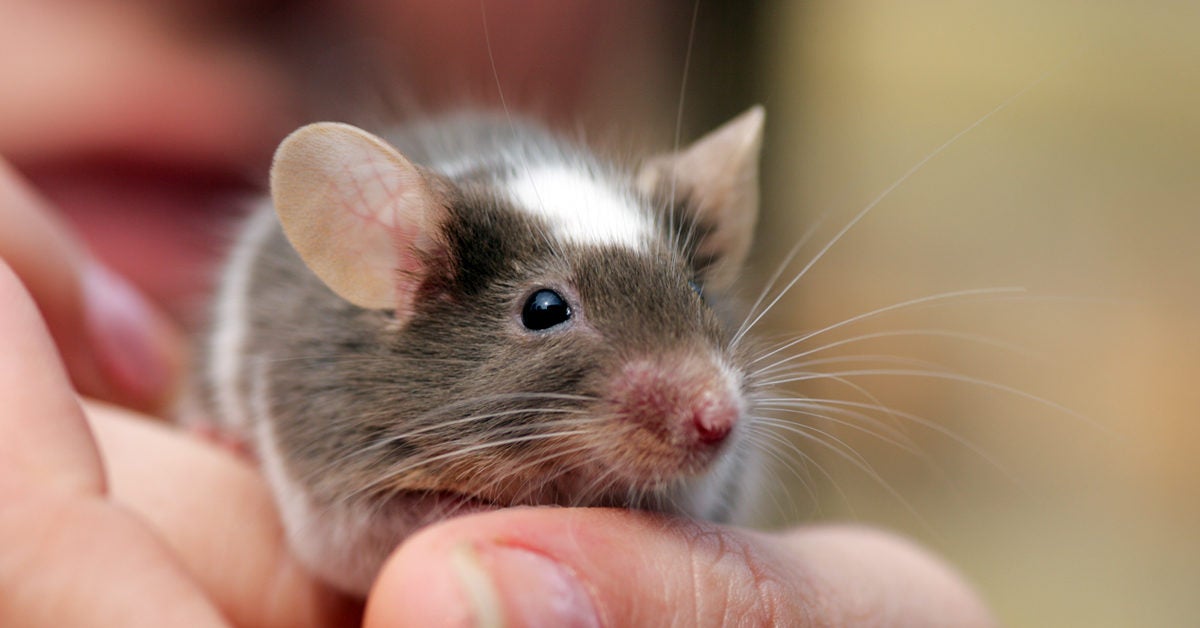If You're Bitten By a Mouse: Treatment and When to See a Doctor - Healthline

Mice and rats can spread disease through their saliva, feces, or urine. They also often host mites, fleas, and other parasites that can transmit diseases to people.
Luckily, mice aren't aggressive and usually only bite people when they feel threatened or cornered. Unless you're handling them, you're very unlikely to get bitten.
Mice bites usually aren't serious, but it's still a good idea to see a doctor if you get bitten. The main threat of rodent bites is the risk of infection. Mice carry bacteria and viruses that can lead to potentially lethal conditions.
Let's take a look at what mice bites look like and the potential risks.
Mice have strong front teeth that can break your skin if they bite you. Their bite can cause a sharp pinching sensation and draw blood. Usually, their bite causes a single puncture wound.
You're most likely to get bitten by a mouse if you're handling it. However, in rare circumstances, a mouse may bite you if it feels threatened, even if it's unintentional.
A 2018 Canadian news story describes a woman getting bit on the leg by an unprovoked mouse in a theater. After getting bitten, the woman looked under her seat and saw three mice living there.
Most of the risks of mouse bites come from potential bacterial or viral infections. Mouse bites can also cause allergic reactions in some people.
According to the Centers for Disease Control and Prevention (CDC), small rodents including mice and rats
Allergic reactions
A
The 55-year-old man received a bite on his middle finger. Within 10 minutes his whole body became itchy and he developed a rash on his arms. Five minutes later, he developed swollen lips and he became dizzy.
The man's symptoms subsided within 8 hours after admittance to a hospital.
Rat-bite fever (RBF)
Rat-bite fever is a type of infection carried by bacteria that live on some rodents. It can be transmitted through bites or by consuming food and water contaminated with rodent feces or urine.
Symptoms usually begin within
- fever
- vomiting
- headache
- muscle pain
- joint swelling or pain (about 50 percent of the time)
- rash (about 75 percent of the time)
Antibiotics are
Hantavirus
Hantavirus is a rare but potentially lethal disease spread by deer mice and white-footed mice. It has a mortality rate of
- fever
- fatigue
- muscle aches
- dizziness
- chills
- nausea
- vomiting
- diarrhea
- abdominal pain
Four to 10 days after infection, some people develop symptoms like:
- shortness of breath
- coughing
- a feeling of a band tightening around your chest
- fluid in lungs
Hantavirus can be spread through mouse saliva, urine, or feces. Transmission through mouse bites is rare. Usually, people develop it through airborne transmission.
Lymphocytic choriomeningitis
Lymphocytic choriomeningitis is a viral disease carried by rodents. It's estimated that
Symptoms usually onset within
Early symptoms often include:
- fever
- a general feeling of unwellness
- loss of appetite
- headache
- vomiting
If the infection spreads, it can
Pet mice may bite you when you handle them. You can minimize your chances of getting bitten by wearing gloves when you put your hands in their cage or when you pick them up.
The CDC
Some diseases like lymphocytic choriomeningitis are more common in wild mice but have also been reported from
If you're bitten or scratched by a rodent, you should immediately clean your wound with warm water and soap. After you clean the area, you can dry it with a fresh towel and apply an antibiotic cream and bandage.
It's a good idea to see a doctor any time you're bitten by a rodent. Even though the wound might not look serious, rodents can carry bacteria and viruses in their saliva that can cause potentially life-threatening diseases.
There currently
Mice rarely bite but may do so if they feel cornered or threatened. If you're bitten by a mouse, it's a good idea to immediately wash the wound with soapy water and see a doctor. Most infections caused by rodent bites have a good outlook when treated quickly.



Comments
Post a Comment